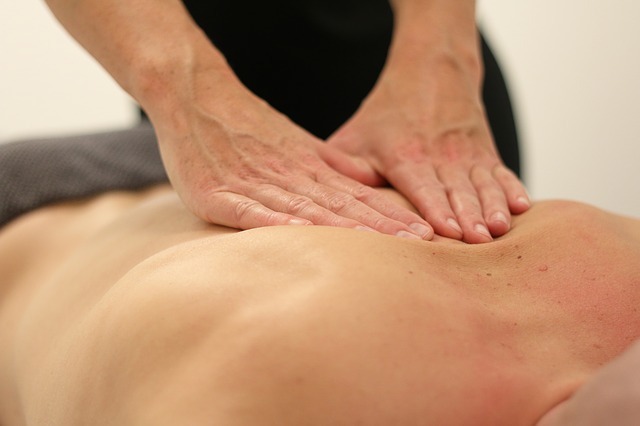Local Sports TherapistsThank you so much for using Sporting Bounce to find a to find a sports massage therapist near you. Whatever your needs, from managing neck pain through to having a sports massage the professionals listing on our site can help. |  |
We are an online sports directory listing people, and clinics, offering a range of sports services. We have an excellent selection of sports massage therapists on our site. So if you are looking for sports therapy near you you have come to the right place!
The sports therapists listed on our site cover individuals with a broad range of backgrounds and skills applicable to sport. In general sports therapists aim to prevent injuries as well as assisting with rehabilitation. They work in areas of injury prevention, injury assessment, injury rehabilitation and sports massage. Examples of the type of services sports therapists may provide (depending on their specific qualifications) include first aid in a sporting setting, developing injury rehabilitation programmes, optimisation of pre-competition preparation so the risk of injury is minimised and refer on to specialist advice if needed. If you want your physical activity to be free from aches and pains the a sports therapist can help.
Many also offer different forms of massage treatments, comprising a range of different massage techniques, including pre and post competition massage, Sports massage, Swedish massage, Remedial massage, Deep tissue massage, Myofascial release, Neuromuscular release, Soft tissue release and Trigger-point massage. The different types of massages offered can help reduce scar tissue, muscle tension and improve blood flow for optimum performance and recovery. The benefits of sports massage therapy can address a range of issues to help sports performers.
Some of our sports therapists will be educated to degree level, having completed a degree accredited by the Society of Sports Therapists.
There are also a range of backgrounds that other sports therapists may have. For example, they may be soft tissue therapists (including sports massage therapists, and massage therapists) who manage, manipulate and rehabilitate the soft tissues within the body. These soft tissues include muscles, tendons and ligaments. These individuals can be members of The Association for Soft Tissue Therapists and the Sports Therapy Organisation who are regulated by The General Council for Soft Tissue Therapies, or the Federation of Holistic Therapists.
Some of our practitioners are also listed on the Complimentary and Natural Healthcare Council's register which is approved as an Accredited Voluntary Register by the Professional Standards Authority for Health and Social Care. With such a diverse profession there may be other backgrounds too and you can see exactly which background each sports therapist has by viewing their profile, or by contacting them for more information.
Working with a sports massage therapist can significantly improve your athletic performance, aid recovery, and prevent injuries. To get the most out of your sessions, preparation, communication, and post-treatment care are crucial.
Before the session, clearly communicate your goals and concerns. Whether you're dealing with muscle tightness, an old injury, or just want to enhance recovery, the therapist needs to know. Describe your sport, workout routine, and any specific areas of discomfort. The more detailed you are, the better the therapist can tailor the treatment to your needs.
Timing is essential. Avoid scheduling a deep tissue massage right before a major event or intense workout. These massages can leave you sore and temporarily reduce strength or flexibility. For pre-event sessions, opt for lighter massages that improve circulation and mobility. Post-event or between intense training sessions, deeper massages help with recovery.
Before your session, drink plenty of water to help flush toxins released during the massage. If possible, do some light stretching or movement to get your muscles warm and more responsive. This can help the therapist work deeper into the tissue.
Provide feedback to the therapist as the session progresses. Let them know if the pressure is too much or if certain areas are particularly sensitive. However, some discomfort can be expected, especially during deep tissue work aimed at breaking up tight muscles.
After the massage, drink water to help with muscle recovery and toxin elimination. Avoid strenuous activities for the rest of the day and consider light stretching to maintain the benefits of the session.
By following these steps, you’ll maximise the effectiveness of your sports massage therapy.
On our directory we have sports therapists near you who offer services that address sports injury, fitness training and sports massage.
You can find more material relating to sports injury, fitness training and sports massage on our sport performance blog page. Here you can find answers to many sports massage related questions, including:
Thank you once again for visiting our directory to find the ideal sports massage therapist near you, or local sport therapist clinic.